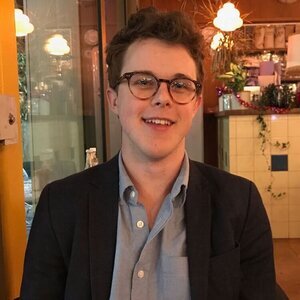Geography Model Personal Statement
This is the model personal statement of a successful Oxbridge Geography applicant.
Geography is one of the most relevant of all disciplines; its global focus attempts to understand the increased interconnectedness of international systems and their local effects. To gain a multidimensional perspective of these systems is what makes studying it so exciting. At my school’s Geography Society, we considered this in the form of Donald Trump’s nativist attitude towards immigration; his views are formed in a time where increased globalisation is seeing a backlash in the form of neo-nationalism. I expanded this interest by attending Tim Marshall’s lecture at the RGS on ‘Divided: why we are living in an age of walls.’ His analysis of the reactions towards mass migration was thought provoking, encouraging me to read his book of the same title. It challenged my preconceptions that globalisation increases international openness. I considered that no matter how globally connected countries become, it will always be in our nature to construct barriers to protect resources and culture.
An FT article on Chinese pollution drew my attention to the impact of heavy industry in developing countries. Following this, Daniel Gardner’s ‘Environmental Pollution in China’ focused on how the rise of consumerism is having detrimental effects on air and water pollution. I was fascinated how pollution, a universal phenomenon, does not impact everyone equally, with the poorer citizens being significantly more vulnerable. From this reading I developed a greater awareness of the flows and interrelations between people and the natural world, a fundamental concept of geography.
A study of the tragedy of the commons in school led me to read Ash Amin’s ‘Releasing the Commons’ which focused on capitalism’s threat to the privatisation of shared environments. I considered the different perspectives of the academics to deduce that wealth strongly determines how claims are made towards the commons. I applied the same conclusion in my RGS essay competition entry on contrasting claims of different groups towards public space in the Global South. Through this process I refined my skill of harnessing academic literature to supplement my arguments.
Participating in the Institute of Research in Schools’ inquiry into glacial retreat proved to be a great opportunity to practise data analysis. I tracked Pine Island Glacier using QGIS software to map satellite imagery. The stark reality of glacial thawing emphasised global warming’s impact and the collective response that is required, especially by those who have funds to make changes. My Extended Essay additionally required the collection and analysis of data to research gentrification in Brixton using the ONS and other governmental data sources. Navigating through online sources proved difficult due to the abundance of information, but my IB maths course allowed me to process the figures effectively. I found a prominent correlation, and possible causation, between the level of gentrification of an area and the displacement of the long-standing Black population, resulting in ethnic enclaves. I concluded this was primarily due to an unequal rise in property prices. Developing and proving my own hypothesis is something that will support me in a degree.
Global issues such as education inequality certainly drives my passion for geography. Educating women in rural areas is crucial to provide opportunities beyond agricultural self- sufficiency. It was rewarding to create a geography-themed calendar to fundraise for a charity that builds girls’ boarding houses in the Atlas Mountains, especially as I was able to visit and appreciate first-hand the impact of education in these inaccessible areas.
I was U16 Kent hockey captain which developed my teamwork skills and my distinctions in Trinity drama exams have boosted my presentation skills. The IB has enabled me to develop multidisciplinary interests and encouraged a globally conscious mindset, which I feel is crucial when studying geography in the 21st century.


